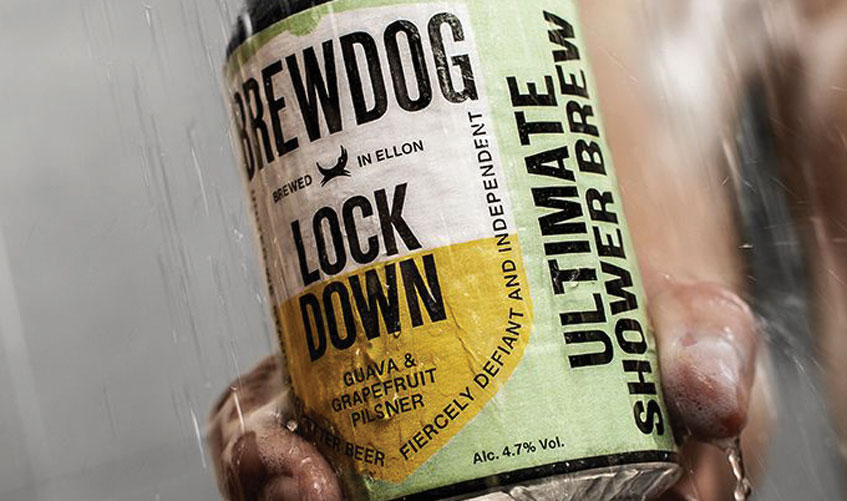LISTEN Real estate has been hit hard by Covid-19, but no branch has been impacted more than the leisure sector. Here, lockdown was quick, comprehensive and its effects will be long-lasting, even with many pubs planning a partial reopening later this month. The threat to this key pillar of the economy – from circumstance, from government and, according to some, from landlords – is real.
A lot has been said by tenants about landlords’ role in this crisis, much of it misplaced. But some, like BrewDog chief operating officer David McDowall, take a measured view when it comes to making a considered call for support from property owners. McDowall’s concern is that too many are refusing to engage in dialogue. His fear, perhaps, is that they do not fully appreciate the consequences of not engaging.
“Just in the UK, 50% of hospitality businesses, 2m hospitality jobs and potentially another million or more in the hospitality supply chain are at risk,” he says. “It’s absolutely frightening. Our hospitality and leisure will never be the same after this.”
10-point plan
With more than 100 bars across the globe, exports into 60 countries, and breweries in the UK, the US, Germany and Australia, BrewDog has led the craft beer revolution from its HQ in Ellon, Scotland. But McDowall recognises it has a fight on its hands.
“We lost 70% of our revenue overnight,” he says. “The vast majority of pub, restaurant and hospitality operators lost 100% of their revenue overnight, which is incredibly frightening. Because we are a brewer and a pub company, then there is little bit of diversity there which has helped us.”
Nevertheless, it required a quick, painful transition. “Our on-premise distribution disappeared; 102 pubs pretty much all closed. All of a sudden we realised that we had two really key areas of focus and priorities: one, to try and give this business the best chance of surviving as possible and, secondly, while doing that to protect as many livelihoods among our 2,000 team members as we possibly could.”
Web and supermarket sales have helped but the company has also begun to switch focus to how it might reopen its bars safely and profitably.
“First of all, we started working on the things that would make our team feel safe coming back to work, and we’ve been able to experiment with that and implement that gradually through a process of opening some of our locations for takeout over the past few weeks. And secondly, we put together a 10-point consumer-facing plan designed to give customers some confidence that we really had thought through the challenges of them visiting a pub or a restaurant again.”
Ordering via contactless app, new table layouts and social distancing will be key to restoring that confidence. Reduced capacities will be inevitable but, ultimately, unsustainable.
“We don’t make any profit from our locations until we’re at 80% of the capacity that we were at before,” McDowall says. “If we are still at 50% capacity in two or three months’ time then we are in a very difficult place in terms of where those bars are from a profitability perspective.
“And the other thing to remember is that given the size and diversity of the business, we’re probably in a better place than most. The vast majority of restaurant operators have got 16 days of cash flow and they burn through that pretty quickly. We have decided that it’s right for us to open at 50% and try and build it to 70% and 80% and get the sites back to profitability. Others won’t have the luxury of being able to do that.”
Get around the table
You’ll already have the sense that McDowall believes BrewDog can only thrive if the sector thrives. And so it is offering support to 500 small independent businesses through its Kickstart Collective.
“The independent pub trade has been very good to us as we’ve grown our business over the years,” he says. “We felt that there was an opportunity for us to take some of the learnings we’ve gone through over the past month or so and open-source that to share it with as many independent operators as possible, because a lot of those people are scared for their businesses and their livelihoods.”
It’s the kind of collective approach McDowall wants to see come from government – via an extension of the furlough scheme and VAT reduction to tempt back consumers – and from landlords too.
“There just has to be a pragmatic conversation where the key protagonists – tenant, landlord, lender and government – if required, sit round the table and find a way to share the pain of this period. Otherwise, landlords are going to find themselves with a lot of empty properties on the other side of this.
“All we’re asking is for open dialogue to try and find solutions. And I would say we probably got that from 10% maximum of our UK landlords at the moment; 90% aren’t willing to engage in any dialogue about supporting the business.”
But McDowall is at pains to point out that just as operators are suffering, he recognises landlords are too.
“The premise of the national time out campaign that we’ve been supporting is that it’s crucial there is also support for landlords and not just tenants in terms of how they’re able to take a holiday from any loan repayments for that particular property during that period that they’re having to support retail. So we certainly have sympathy for that. But we think that could be resolved by fair, equitable, open and transparent dialogue. We are in the main, unfortunately, still struggling with that at the moment.”
To send feedback, e-mail damian.wild@egi.co.uk or tweet @DamianWild or @estatesgazette











